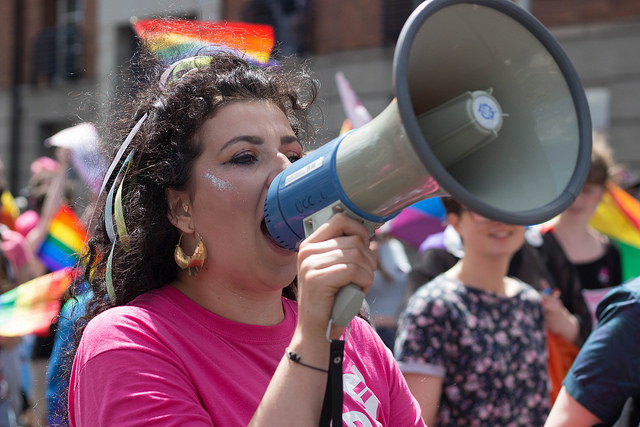This International Women’s Day 2018, the year that we celebrate the centenary of women’s right to vote, is an important moment to reflect on the year ahead and the changes we need to make for women’s equality.
While Countess Markievicz was the first woman elected in Ireland and the first woman to be appointed to Cabinet, it took another 60 years until another woman, Maire Geoghan Quinn, became a senior minister. The pace of change for women’s equality in Ireland has been unacceptably slow – an example of this being that the most recent appointment of a woman to Cabinet, that of Deputy Josepha Madigan at the end of 2017, was only the 19th ever appointment of a woman to the post of a Cabinet Minister.
Since women’s suffrage was introduced in 1918, the representation of women in the Oireachtas has increased at a snail’s pace, with only 15 per cent of women elected to the Dáil in 2011. The introduction of gender quotas for candidates in 2012, as advocated by the National Women’s Council of Ireland for many years, increased the number of women TDs to a historical high of 22 per cent following the 2016 General Election.
Valuing care work without prescribing specific gender roles will be at the heart of the second referendum scheduled for October
This shows that where there is political will to increase women’s representation, it happens. It is now critical that we replicate the successful gender quota for candidates at the upcoming local elections and quotas for senior decision-making positions at Board level in the public and private sector in our society.
While we celebrate women’s suffrage in 2018, there will be two important votes that have the potential to change women’s lives in Ireland. Following the report of the Joint Oireachtas Committee on the Eighth Amendment and its recommendations, the government will hold a referendum to remove the Eighth Amendment from the Constitution, most likely in May this year.
This will be an historic opportunity to ensure comprehensive healthcare services for all women, including abortion and for doctors to care for all of their patients without fear of prosecution. As outlined in the National Women Council of Ireland’s “Every Woman Model for accessible, affordable healthcare options for all women and girls” every pregnancy is different, and like all healthcare decisions, pregnancy decisions are deeply personal. This complexity has no place in our constitution.
Valuing care work without prescribing specific gender roles will be at the heart of the second referendum scheduled for October on the article on women in the home. Currently the article states that “the State recognises that by her life within the home, woman gives to the State a support without which the common good cannot be achieved”. While the article never reflected the complexity of women’s lives but rather led to restrictions for women’s leadership outside of the home, for example through the marriage bar, the referendum in October will be a chance to include a broad, inclusive symbolic statement about the importance of care and care work done by both women and men in Irish society into our Constitution.
International Women’s Day is an important day to celebrate the advances we are making for women’s equality, but it is also important to highlight legacy issues. The gender pay gap is still at 13.9 per cent and we have an even larger gender pensions gap of 37 per cent. In 2017, women from across the country joined with National Women’s Council of Ireland to call for a fair and equal pension system that recognises the unpaid care work that women do, and the detrimental impact of the marriage bar on women’s pensions. Reforming the pensions system is high on the Government’s agenda for 2018 and we must place women’s experiences and work/life patterns at the core of those reforms.
A serious barrier to ending violence against woman is that we continue to lack current research and data as to the extent and depth of the problem from our statutory agencies
There are still barriers to equality faced by younger women. “It Stops Now” is a European-wide project that aims to prevent and combat sexual violence and harassment and build a culture of zero tolerance in third-level education throughout Europe, by raising awareness through active campaigning, and by developing training and policy resources for students and staff. Trinity is a partner on “It Stops Now”, and students have been particularly active around the issues of consent, and sexual and harassment and abuse in colleges around Ireland, and they have a huge role to play in giving these issues national prominence. It Stops Now fits into the wider context of combatting sexual harassment and violence that women experience in Ireland, where one in five women will experience domestic abuse at one point in their life. A serious barrier to ending violence against woman is that we continue to lack current research and data as to the extent and depth of the problem from our statutory agencies.
Women will experience gender equality when we have full representation in leadership positions, when we eliminate the gender pay and pensions gap, when we have access to comprehensive and compassionate reproductive healthcare, and when we can live free from violence and harassment. This International Women’s Day feels like we’re on the cusp of real change for women in Ireland. We can do it.







